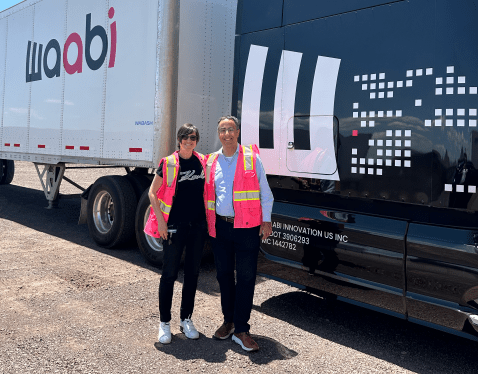Self-driving truck maker Waabi has hired autonomous vehicle industry veteran and Uber Freight CEO Lior Ron to step in as chief operating officer. The move comes as the startup prepares to scale its commercial operations ahead of its planned launch of driverless trucks on public highways later this year.
Rebecca Tinucci, who previously spent six years building Tesla’s charging network before the automaker reduced its charging staff last year, will take over as head of Uber Freight. Ron will remain as Uber Freight’s chairman.
Raquel Urtasun, Waabi’s founder and CEO, stated that Ron will lead the company’s go-to-market strategy, expand key partnerships, and drive Waabi’s transition to large-scale commercialization. She highlighted his track record of scaling Uber Freight from inception to a $5 billion revenue company.
Urtasun and Ron have a long professional history. Ron previously co-founded self-driving truck company Otto, which Uber acquired in 2016. The two worked together at Uber, where Urtasun served as chief scientist, leading the company’s self-driving research from 2017 to 2021.
Uber Freight operates as a digital marketplace connecting shippers with carriers. The company aims to integrate self-driving trucks into its platform through partnerships with startups like Aurora Innovation and Waabi. Ron confirmed that Uber’s partnership with Waabi remains unaffected by his departure.
During his time at Uber Freight, Ron engaged with chief supply chain officers and major carriers who, he said, were eager for self-driving trucks. He emphasized that joining Waabi was a strategic decision, believing the company is best positioned to lead the transformation in autonomous trucking.
Urtasun claims Waabi’s “AI-first” approach has enabled it to achieve more with fewer resources and in less time than competitors. This efficiency is crucial in a capital-intensive industry where startups like TuSimple and Embark have struggled.
Founded in 2021, Waabi has raised $287.7 million in total funding, with the majority coming from a $200 million Series B round in 2024. Urtasun stated the company does not need additional funding to reach its next growth phase.
Waabi’s main competitor, Aurora, recently launched the first commercial driverless trucking route in the U.S. and has raised nearly $3.46 billion through venture capital and its public listing.
Waabi has accelerated its commercial pilot programs by conducting most of its training, testing, and validation in Waabi World, its closed-loop simulator. The simulator allows the company to test self-driving software and train it in real time without real-world risks. Recently, Waabi extended its simulator to test tracks, overlaying virtual environments onto real-world conditions to simulate scenarios like accidents and construction zones.
Urtasun noted that Waabi has reached “feature complete” status, meaning it has all the necessary components to remove the driver and is now focused on final performance improvements and validation. The company remains on track for its driverless launch by the end of the year, marking the start of commercialization.
Waabi plans to launch in Texas, the autonomous freight hub of the U.S., though specific routes and launch partners have not yet been disclosed. The startup is collaborating with Volvo Autonomous Solutions to develop and deploy custom-built autonomous vehicles.
Ron expressed confidence in Waabi’s ability to scale autonomy faster than expected and integrate the technology seamlessly into customer operations. One key feature will allow Waabi’s trucks to drive directly to customer depots, eliminating the need for additional terminals.
Ron concluded by stating that Waabi is committed to delivering a commercial-ready solution that meets customer needs effectively.

